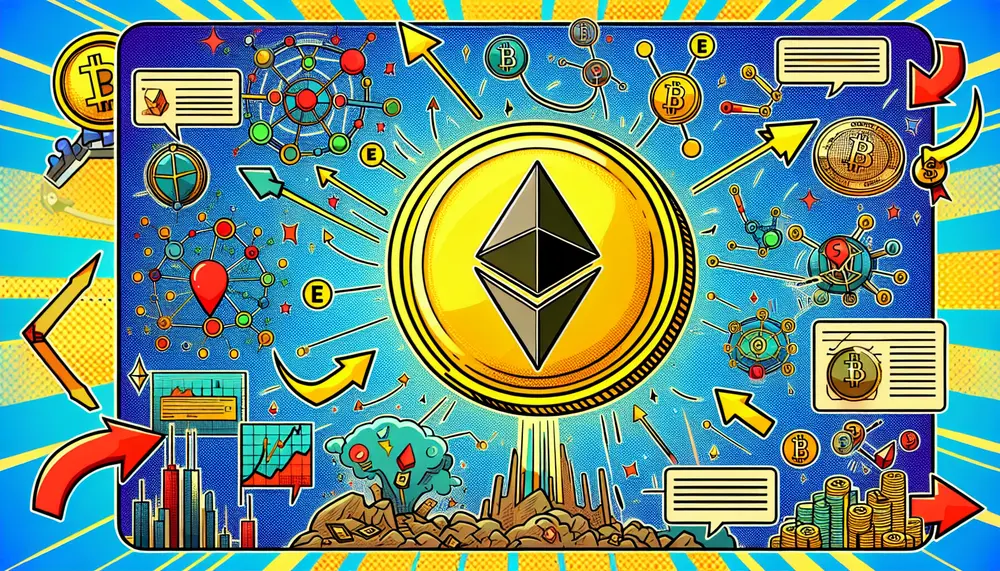Decentralization
Decentralization
What is Decentralization?
Decentralization is a core concept in the world of cryptocurrency and exchanges. It refers to the distribution of control and authority among all users and participants in a network rather than being centralized in a single entity or group. This method increases security, transparency, and trust, as no single point has all the power or information.
Decentralization in Crypto Exchanges
In the context of crypto exchanges, decentralization means that the platform operates without a central authority that controls the funds and transactions. Instead, transactions are directly peer-to-peer, managed by technology. This setup enhances privacy, reduces risks of hacking and fraud, and often results in lower transaction fees.
Benefits of Decentralization
Decentralization offers numerous advantages. It eliminates many of the vulnerabilities associated with traditional centralized systems including single points of failure. Users enjoy greater control over their assets and interactions, contributing to a more resilient and fair ecosystem.
Decentralization in All-in-One Platforms
An all-in-one platform in the crypto space often integrates various services like trading, lending, and staking in a decentralized manner. Such platforms utilize decentralized technologies to provide a comprehensive suite of services while maintaining the ethos of decentralization, empowering users with complete control over their digital assets.
Conclusion
Ultimately, decentralization reshapes how transactions and exchanges occur within the financial sphere. It aligns with the ethos of blockchain and cryptocurrency, fostering a more secure, private, and efficient environment for all participants.
Blog Posts with the term: Decentralization

Polygon Coin, initially launched as Matic Network in 2017 by Jaynti Kanani, Sandeep Nailwal, Anurag Arjun, and Mihailo Bjelic, aimed to address Ethereum's scalability issues with faster transactions and lower fees. The rebranding to Polygon in February 2021 marked its...

The Bitcoin whitepaper, published in 2008 by the pseudonymous Satoshi Nakamoto, outlines a decentralized digital currency system that addresses issues like high transaction fees and fraud risks inherent in traditional financial systems. It introduces key concepts such as decentralization and...

Bitcoin mining secures the Bitcoin network by solving complex mathematical problems using specialized hardware, which verifies transactions and adds new bitcoins into circulation. Miners compete to solve these puzzles for rewards, ensuring transaction legitimacy and preventing double-spending while maintaining network...

The ApeCoin whitepaper outlines the purpose, structure, and future plans of this ERC-20 token within the Bored Ape Yacht Club (BAYC) community. It highlights its dual role in governance and utility, allowing holders to participate in decision-making processes and access...

Ethereum, launched in 2015 by Vitalik Buterin, is a revolutionary blockchain platform that enables developers to build decentralized applications (DApps) using smart contracts. Its native cryptocurrency, Ether (ETH), powers the network and has driven significant innovation across various industries through...

Ethereum is a decentralized blockchain platform enabling smart contracts and dApps, proposed by Vitalik Buterin in 2013. Its native cryptocurrency, Ether (ETH), facilitates transactions and computational services on the network, with key features including decentralization, gas fees for operations, and...

Bitcoin's price has surged past $106,000 amid speculation of it becoming a U.S. reserve asset under President-elect Trump, with analysts predicting even higher future valuations if this status is achieved....

The creators of Pudgy Penguins are launching Abstract, a consumer-focused Ethereum layer-2 blockchain aiming to enhance crypto application interaction with low fees and high scalability. Meanwhile, Catly's developer denies using AI or NFTs in their game; challenges persist for blockchain...

Bitcoin has surged past $100K, driven by positive US CPI data and investor confidence, while Ethereum and altcoins also saw gains; meanwhile, XRP faces scrutiny due to SEC developments. Institutional investments in Ethereum are growing as BlackRock and Fidelity purchase...

The Ai16z token has surpassed a $1 billion market cap without major exchange listings, showcasing its innovative AI-blockchain approach and highlighting evolving crypto dynamics. Meanwhile, Japan intensifies scrutiny on unregistered exchanges for better financial audits, and Tether faces potential delisting...

The articles discuss the transformative potential of blockchain in empowering users and reshaping internet dynamics, Ripple's advancements in its ecosystem, Settlemint's funding for enterprise DLT solutions, and the uncertain future of meme-based cryptocurrencies like Pepe Coin amidst innovative AI-driven projects....

The integration of AI in cryptocurrency is revolutionizing industries by enhancing blockchain capabilities, offering innovative solutions like smarter transactions and autonomous financial systems....

The Trump administration is considering shifting cryptocurrency regulation to the CFTC, potentially reducing SEC influence and fostering innovation in a $2.24 trillion market. Meanwhile, Flashbots launched BuilderNet to address Ethereum centralization issues, Bitwise proposed an ETF for Bitcoin and Ethereum...

A massive XRP transaction from Binance, GRVT's Bermuda license approval, parabolic crypto rallies reminiscent of past booms, ACX's surge post-Binance listing, Robinhood's ambitious growth plans, and Bitget's GMCI meme index highlight significant developments in the cryptocurrency market....

